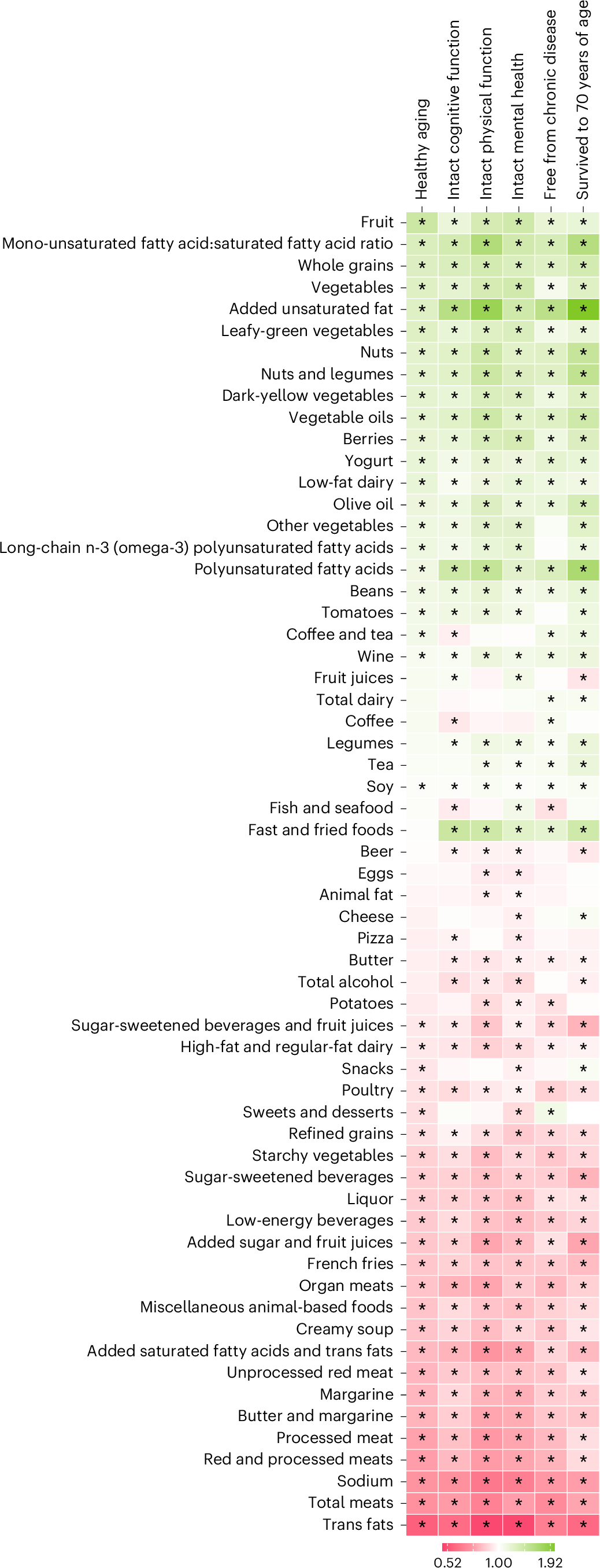An interesting study came out recently in Nature, looking at the self-reported diet of 105,015 people and comparing various foods and diets over 30 years. The study prioritized “healthy aging”, which it defined as reaching age 70 without hypertension, heart disease, diabetes and other chronic problems. This was achieved by only 10% of participants. They also looked at other things like intact physical, mental and cognitive function.
These studies are not without flaws. Surveys are limited by people being sucky at accurately recording what they recently ate. Inclusion bias means healthier people agree to participate (just as angry people write yelp reviews). Exercise is hugely important but not considered here. Sleep and socialization are obviously crucial too.
Whole fruit (not the juice!) was highest on the list of healthy foods. Monosaturated to saturated fat ratio, whole grains, vegetables, nuts, and low fat dairy and wine were positively correlated with health. So was “fast and fried foods”.
Ultraprocessed foods lower the chance of “healthy aging” by 32%, but probably most of the participants were eating them; surprised this number is that small.
This study dumps on meats (organ meats and poultry were said to be marginally healthier than red meat and processed meat, high sodium was worse. Surprisingly, fish and soy were marginal). Personally, I believe a diet of fish and minimally processed meat high in fibre, fruits and vegetables is healthy - particularly in those who strength train. But others have suggested protein consumption and size work against longevity due to effects on mTor and AMPK.
High fat dairy has been shown to be beneficial in some recent studies. This study shows “margarine” to be as bad as “butter and margarine”. I personally think butter and cheese in moderation to be healthy, especially if you often use healthy canola or olive oil with a good omega 3 to omega 6 ratio.
Here is the table I found interesting (also shown in next post):
https://www.nature.com/articles/s41591-025-03570-5/figures/4
Here is the rest of the story:
https://www.nature.com/articles/s41591-025-03570-5
Comparing diets, this study liked the AHEI diet which prioritizes the above plus oily fish. I was surprised fish in general was not more positively correlated with healthy aging - so much so I think it shows some of the studies flaws. It also does not break food down into things like pastries which I think tend to be unhealthy and hugely consumed.
